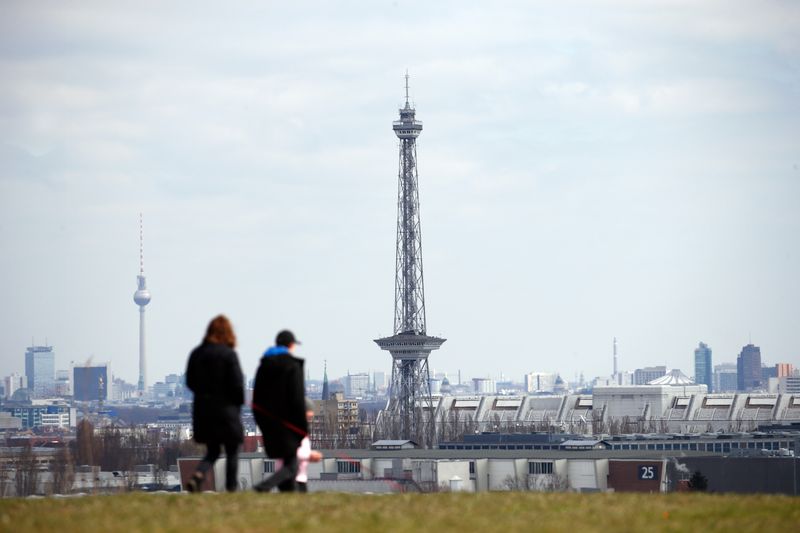BERLIN (Reuters) - The German economy, Europe's largest, suffered a sharp loss of momentum at the end of the second quarter, with falling exports acting as a drag and economic uncertainty and inflation weighing on domestic demand, a preliminary survey showed on Thursday.
S&P Global (NYSE:SPGI)'s flash Purchasing Managers' Index (PMI) for services fell to 52.4 in June from May's final reading of 55.0, but still came in above the 50 mark that denotes expansion for the sixth month in a row. Analysts had expected a dip to 54.5.
The flash PMI for manufacturing dropped to 52.0 from May's final reading of 54.8, below the 54.0 forecast by analysts in a Reuters poll.
That meant the flash composite PMI, which tracks the manufacturing and services sectors that together account for more than two-thirds of the German economy, came in below the 53.1 expected by analysts, falling to 51.3 from 53.7 in May.
Phil Smith, economics associate director at S&P Global, said the June flash PMI data showed that Germany's economy had lost virtually all the momentum gained from the easing of coronavirus-related restrictions, with growth in the service sector cooling sharply for the second month in a row in June.
A broad-based decline in demand was marked by a deepening downturn in manufacturing new orders coinciding with a first fall in service sector new business for six months, as rising prices and elevated levels of uncertainty took a toll, he said.

"Thanks to a particularly grim outlook for the manufacturing sector, business confidence towards future activity is now at its lowest since the first wave of the pandemic two years ago," Smith said, adding that this was translating into a broad-based slowdown in job creation as companies reassessed staffing needs.
Some 800 businesses were surveyed from June 13-21.